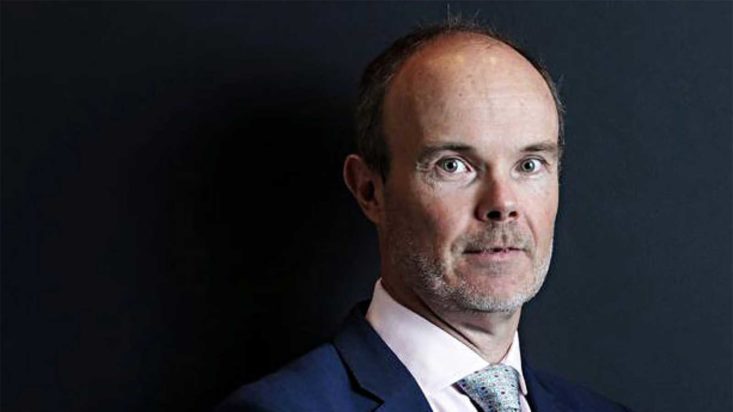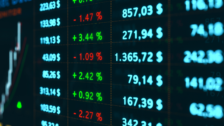Don’t get seduced by yesterday’s returns, says Douglass
“Money makes money. And the money that money makes, makes money” – Benjamin Franklin
To many, this quote likely stands out as being one of the most capitalist comments that could be made. But the quote refers not to greed, but rather to the benefits of compounding returns. Franklin’s line has been encapsulated in the singular focus that has been key to the success of Magellan Financial Group (ASX:MFG) since its founding in 2007, in its progress to become a $100 billion house, managing money for investors all around the world.
After a difficult period, which has seen Magellan’s core global fund give up long-held outperformance against the MSCI benchmark, Hamish Douglass was quick to stress this point during his latest presentation.
His briefing was likely quite timely given the exuberance spreading into many parts of the market and ultimately greater volatility that lies ahead. Douglass offered insights into the impact of compounding on varying levels of return over a period of 20 years. Should Magellan continue to deliver the 12 per cent per annum return that it has since 2007, for another five years, initial investors will have seen their investment increase tenfold over the period; a slow-burning ten-bagger.
As I wrote in a previous article recently, many have thrown the baby out with the bath water in the case of Magellan, despite an exceptional long-term track record. Douglass confronted this head-on, highlighting the defensiveness of his approach, which targets 9 per cent per annum (rather than to beat the MSCI index), and comparing it to the ride of today’s top performers.
The presentation explored the journey of one of many of 2020/2021’s top performers, which tend to experience significantly higher volatility on a year-to-year basis, to show the benefit of patience and downside protection. In the case of the global fund, this downside protection is sought by investing into ‘defensive’ assets, being consumer staples and truly high-quality companies like Microsoft (NASDAQ: MSFT), Alphabet (NASDAQ: GOOGL) and Visa (NYSE: V).
“Don’t get seduced by yesterday’s returns,” said Douglass, highlighting that his core strategy has outperformed in every crisis, capturing just 45 per cent of the downside. And downside still matters, given the many risks to the near-perfect conditions that exist today. These include the threat of further vaccine mutations, speculative bubbles bursting, unexpected inflation or another hiccup in emerging markets.
So where do you turn in this environment? At the core of Magellan’s approach is finding those companies and sectors that are growing faster than “world economic returns.” which it calculates as the level of global GDP growth plus dividends. This becomes increasingly important as we stare at a period in which there is no doubt that interest rates will be higher in five, 10 or 15 years’ time.
The focus must be on investing into defensive companies, or “structural growth assets” that are able to compound revenues at multiples of world GDP, and most importantly, to do so consistently. There are a number of sectors that offer this type of opportunity, ranging from the shift to cloud, digital advertising, enterprise software, streaming and of course, Chinese consumption.
On the latter, Douglass didn’t add to the hyperbole around China, stating that the region is not “uninvestable,” as many high-profile commentators suggest, but rather the consumption story remains as strong as ever. Investors simply need to be patient and “wear the short-term volatility” with the potential for great opportunities.
Microsoft remains the largest position in the fund, with the company described as “simply the best on offer.” It’s the third largest hyperscale cloud provider in the world, has 90 per cent market share in productivity products, 80 per cent in PC operating systems, and Magellan expects revenue to more than double to more than US$400 billion ($540.5 billion) by 2030.
Netflix (NASDAQ: NFLX) is a more recent addition, with management willing to take the hits on short-term subscriber numbers for what it sees as a long-term price. The company’s growing subscriber base, which now exceeds 200 million, opens both the streaming and advertising markets, but ultimately creates a ‘virtuous cycle’ whereby cash flow breeds more content, and the content quality improves. This is highlighted by NFLX’s 44 Emmy wins and the massive success of Korean series Squid Game.
There was no apology for the defensive positioning of the fund, given his mandate to protect capital. There was contrition, however, on the decision not to put more into cyclicals after the vaccine announcements in November.











